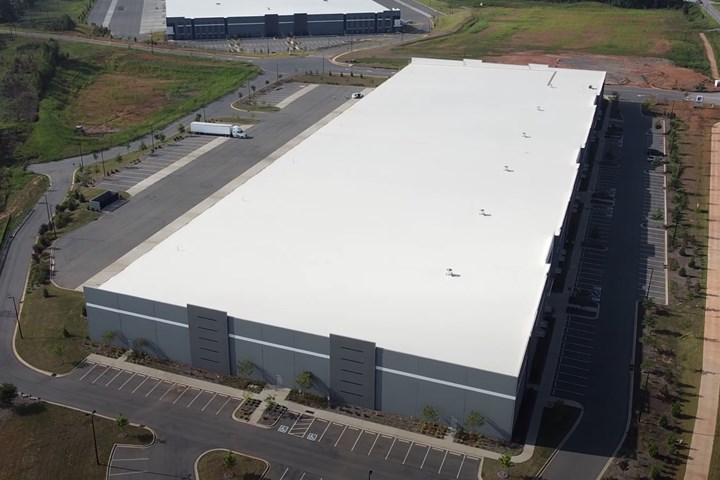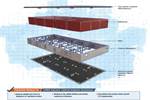Arrival announces plans to establish first U.S. microfactory
The South Carolina-based microfactory will be the London-based company’s approach to bring down the cost of electric vehicles and accelerate mass adoption. Operations are expected to begin Q2 2021.

Photo Credit: Arrival
(London, U.K.), a global electric vehicle company, announced on Oct. 13 plans to establish its first U.S. microfactory in Rock Hill, South Carolina. The $46 million investment into the region will create 240 new jobs.
Founded in 2015, Arrival works with cities around the world to create zero-emission mobility solutions for today's transportation challenges. The company says its South Carolina operations will use a new cell-based assembly method to produce vehicles rather than a traditional automotive production line, allowing the production of any vehicle from Arrival’s portfolio. With this model, Arrival says it occupies a smaller footprint, hence the name "microfactory." The microfactory design is key to Arrival’s approach to bringing down the cost of electric vehicles to accelerate mass adoption.
According to Arrival, the company’s new operations will initially focus on building electric buses with Arrival's vertically integrated approach to vehicle production, which uses the company’s in-house developed components, materials and software. Materials for the electronic vehicles will be sourced from surrounding regions through a localized supply chain, which will also help to reduce the environmental impact; currently, Arrival’s buses incorporate composites.
Arrival is expected to begin operations in the second quarter of 2021, with the start of production in the fourth quarter of 2021. Individuals interested in joining the Arrival team should visit the company’s hiring website at www.readysc.org/arrival.
The Coordinating Council for Economic Development has approved job development credits related to this project.
Related Content
-
Braided thermoplastic composite H2 tanks with co-consolidated molded boss areas to fit EV battery space
BRYSON project demonstrates possible designs, automated manufacturing and low permeability concepts, including EVOH liner and novel PPA matrix.
-
Lilium launches M&A process, targets eVTOL program continuation
Despite court-approved insolvency filings and beginning first investor briefings, Lilium remains fully focused on re-emerging following restructuring, setting its sights on fresh investment to support the Lilium Jet.
-
Update: THOR project for industrialized, recyclable thermoplastic composite tanks for hydrogen storage
A look into the tape/liner materials, LATW/recycling processes, design software and new equipment toward commercialization of Type 4.5 tanks.






